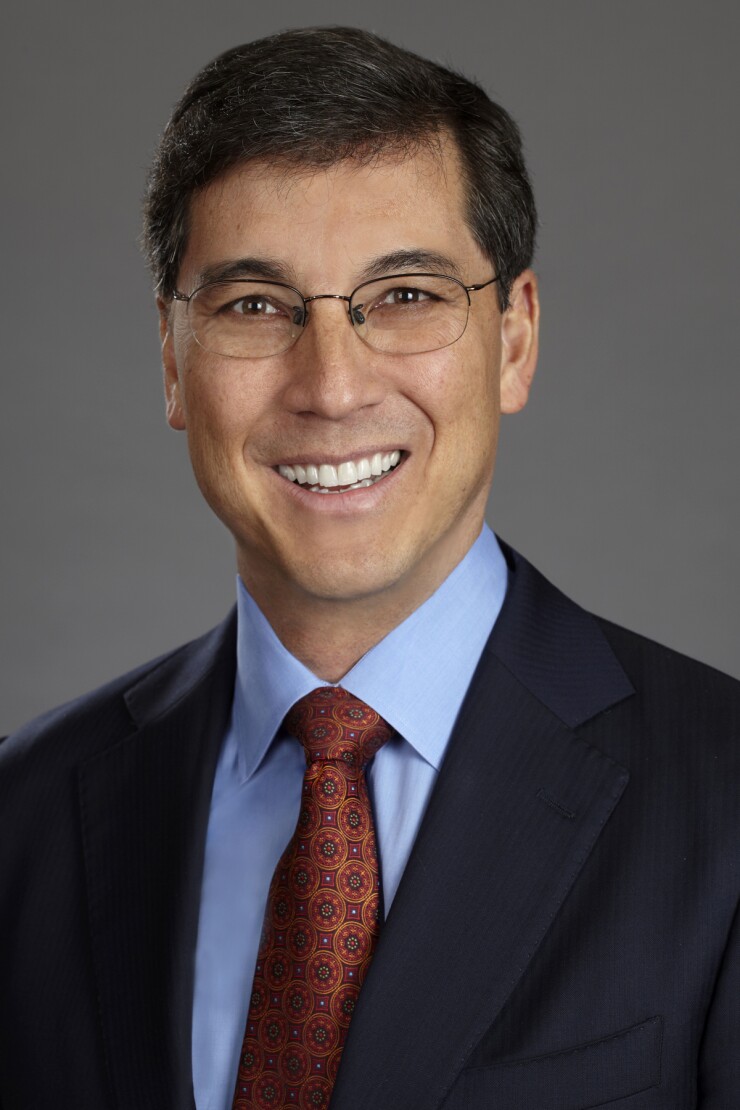ATLANTA — Wells Fargo said it plans to hire scores of minority salespeople, step up lobbying for policies to boost homeownership and form community partnerships to accelerate mortgage lending to black consumers.
On Tuesday, the San Francisco megabank introduced a program to originate $60 billion of residential mortgages to black consumers by 2027. The originations would represent about 250,000 new black homeowners.
The move comes as Wells Fargo continues to struggle with the
"We want to make the pie bigger," said Brad Blackwell, Wells Fargo's head of housing policy and homeownership growth strategies. "We want other financial institutions to join us in this. We can't do it by ourselves."
As part of the initiative, the bank is contemplating several changes to how it qualifies applicants. Wells Fargo may consider "extended household income" to help more black households qualify, which would let applicants include the income of extended family members who live in the same house. Blackwell did not specifically address whether Wells Fargo will loosen underwriting standards, or lower minimum required credit scores, to boost minority mortgage lending.

Wells Fargo plans to do more lobbying at the federal and state level for new policies to encourage minority homeownership, Blackwell said.
"Homeownership has not been part of the conversation in Washington to date" with the new presidential administration, he said. "You've heard tax reform and immigration and national security. We think housing needs to be part of the national dialogue."
He gave few specifics on the policy agenda, except that "it's very important" that the reform of Fannie Mae and Freddie Mac "be done properly" and that the Federal Housing Administration "needs substantial attention."
Wells Fargo has had its own issues with mortgage lending to minorities. The company in July 2012
A range of mortgage industry players attended a Wells Fargo event held on Tuesday at the Center for Civil and Human Rights in Atlanta to unveil the new program.
"I commend Wells Fargo for recognizing that the African-American community is a very good market to go after," Ron Cooper, president of the National Association of Real Estate Brokers, said during a panel discussion at the event. "If two million black people buy houses in the next five years, the American economy will do very well."
Wells Fargo and other panelists described a huge market opportunity for mortgage lending to minority groups. Minorities will make up about three-quarters of the 14 million new U.S. households projected to form by 2024. Black households are expected to make up the third-largest portion of that group.
There isn't one "silver bullet" solution to increase minority lending, Blackwell said. Instead, Wells Fargo outlined several steps it will take to boost mortgage originations to black consumers. For one, the bank will increase hiring of black mortgage counselors. About 31% of Wells Fargo's 8,000 mortgage consultants nationwide are minorities and the bank wants to increase that to 35%.
"There are not enough African-Americans in the mortgage industry," Blackwell said. Wells Fargo plans to use its partnership with the Thurgood Marshall College Fund to help historically black colleges and universities prepare more students for the industry.
Wells Fargo also plans to spend $15 million over 10 years to increase financial education and counseling through new partnerships with community groups. The bank's new partners include NAREB, a trade association for black-owned real estate agencies; the National Urban League; HomeFree-USA; and NeighborWorks America.
The bank already has several ventures in place to improve financial education,
Wells Fargo also plans to continue marketing two products developed to help boost minority lending, including the yourFirst Mortgage program, which offers education for new homebuyers and lower down payments.
The panel discussion on Tuesday took a political tone when Wells Fargo's plan to lobby Congress for policies to encourage homeownership came up. Martin Eakes, the CEO of the $1.5 billion-asset Self-Help Credit Union in Durham, N.C., referred to the lending practices of the bubble years, claiming that at least half of mortgages made to black consumers between 2005 and 2008 were subprime.
"Every person who works a full-time job should, as a matter of economic justice, be able to purchase a modest home," Eakes said. "If this new administration starts to roll back all the protections that have been put in place, all of us are going to have to rise up in the streets."
Blackwell said that Wells Fargo has been developing its new program for more than year, working with NAREB and other community groups to hash out the details.
"This should help stem the decline in black homeownership rates," Blackwell said.




